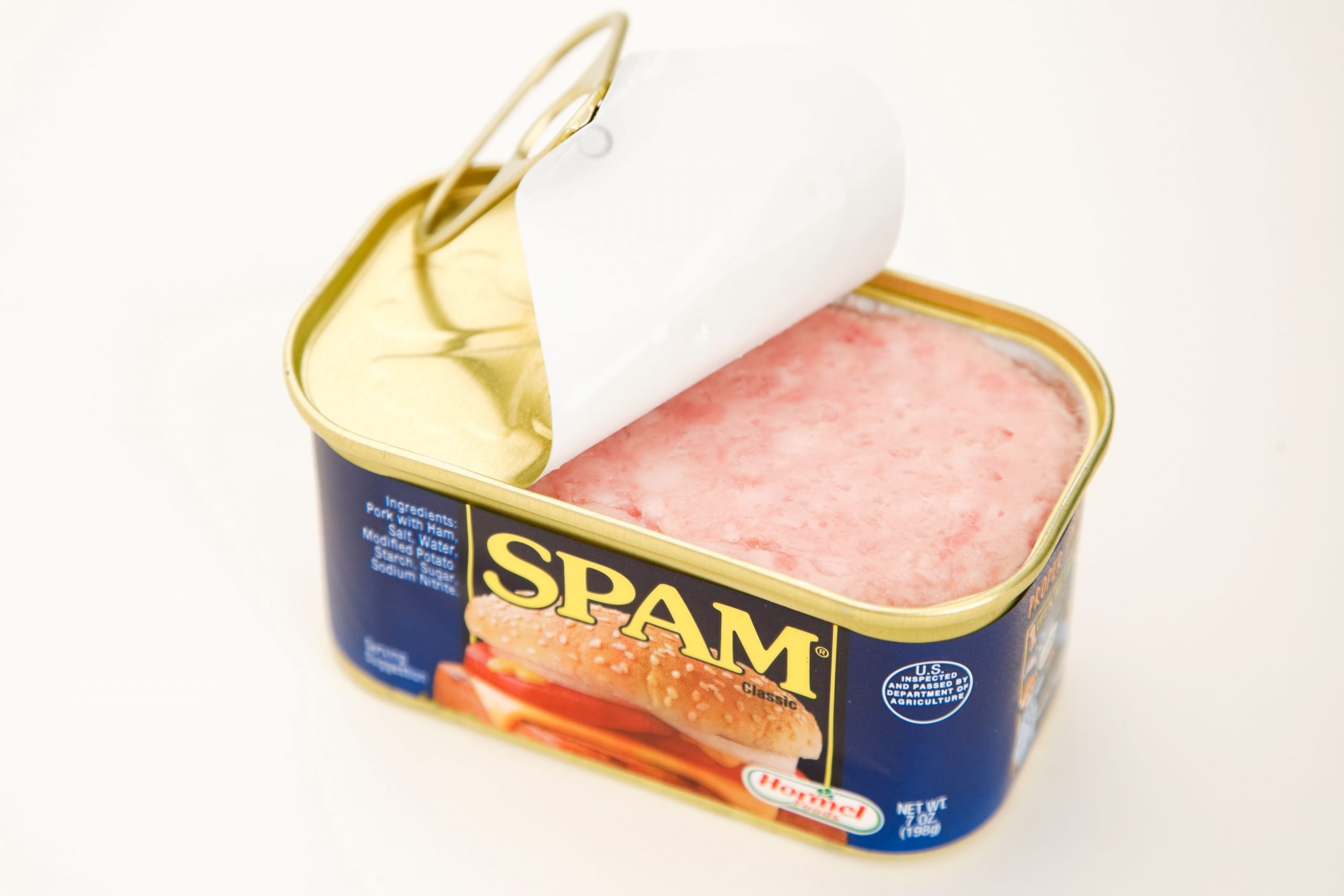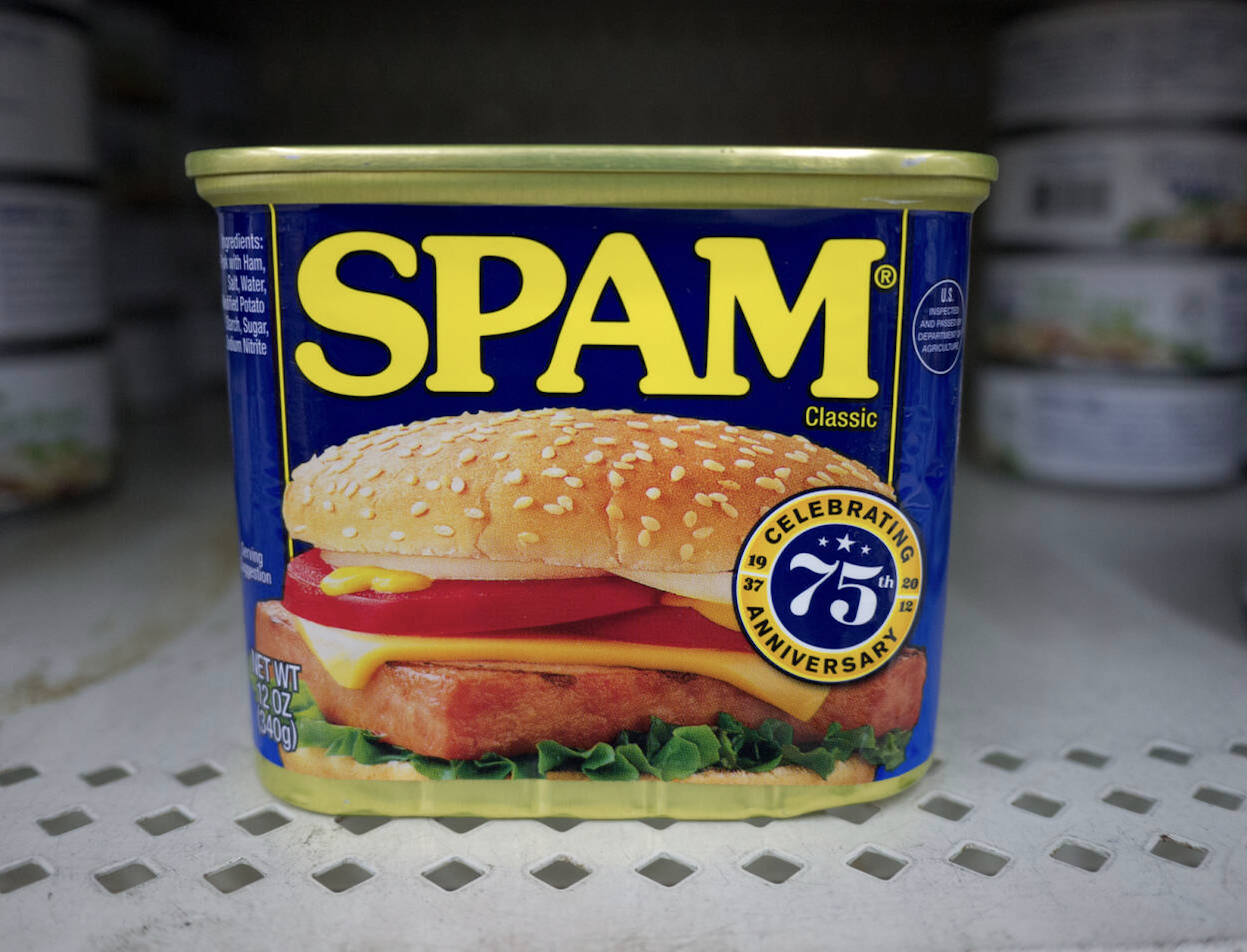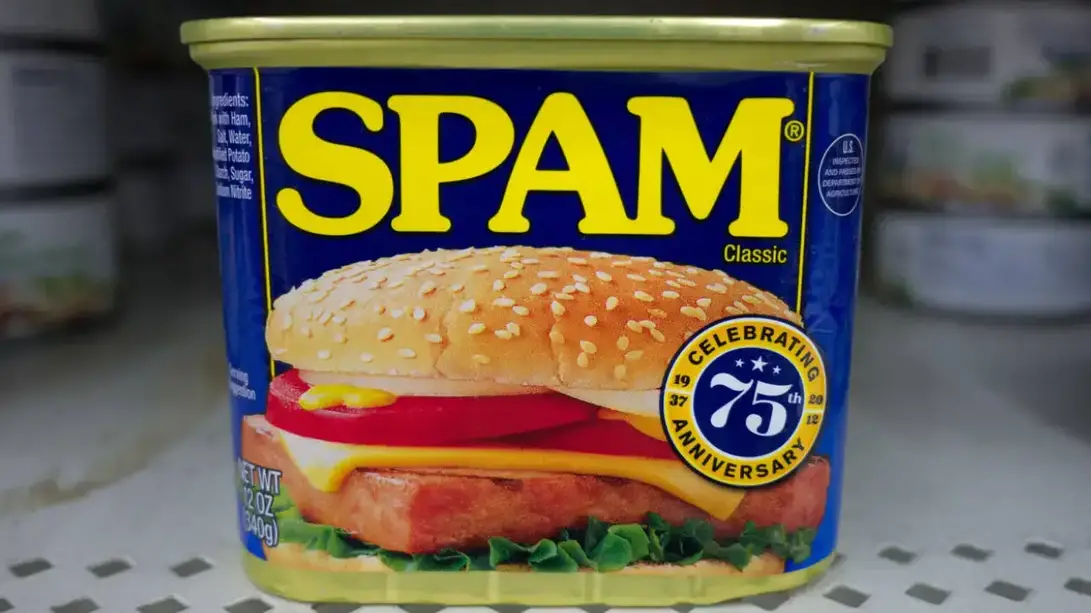People have been left gobsmacked after finding out what SPAM really stands for.
Every day, people are being left mind-blown after finding out everyday facts about food, such as peanuts not being nuts or finding out the meaning behind Pepsi’s name.
And now, people are being left surprised after learning more about SPAM – and what it really stands for…
The tinned-based meat product was first released in 1937 by the Minnesota-based food firm Hormel Foods.
Even though it has been branded as a ‘mystery meat’, SPAM is in fact just a mixture of pork, water, salt, potato starch, sugar and sodium nitrate.
According to TIME, the intended target audience for the product was housewives who wanted cheap, quick meals that didn’t necessarily need much prep time.
However, the product initially struggled to find an audience, with customers being apprehensive to eat meat that didn’t need to be stored in the fridge.

Surprisingly, it saw a massive boom in popularity during World War II due to the difficulty of delivering fresh meat to soldiers.
By the end of the war, over 150 million pounds of it were being purchased by the military.
During World War II, SPAM was introduced into Pacific islands such as Guam, Hawaii, Okinawa, and the Philippines.
It immediately became part of their native diets and part of ‘Filipino identity’, as reported by The Atlantic.
Despite it being an iconic piece of food, people have never really known where the name SPAM comes from.
On social media, one person says: “On a whim, I purchased canned meat. With the first taste, I understood SPAM was an acronym for Salt Preserves Any Meat.”
Someone else jokes: “I just learned that SPAM is an acronym for Sizzle Pork And Mmm.”
A third user speculates: “I was once told it stood for special pressed American meat.”
“Some Parts Are Meat – and I’ll still eat it,” theories another person.

According to TIME, actor Ken Digneau, the brother of a Hormel executive, came up with the name in a naming contest and got $100 as a reward.
When Daigneua first said the word, company founder Jay Hormel immediately knew it was the one, as per Eater.
“I knew then and there that the name was perfect,” he reportedly said.
So there you have it, if you ever wondered where the name SPAM came from, it is simply just spiced ham put together.
And even though there are many plausible suggestions, they are all wrong – as it actually is a portmanteau (blended word) of spiced ham.



